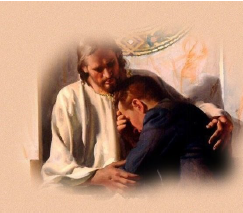My childhood memories of Lent are not highlights of my school years. At St. Peter’s School on Bowdoin Street in Dorchester, there were around 50 kids in every class and a Sister of Charity at the front. Rice Bowls, penance services, giving up lots of stuff, frequent church time and many more ingredients filled up the forty days. Not exactly a happy time. As a child, I am not sure I realized what this season was all about. Ash Wednesday was certainly a big deal – but exactly how to grasp one’s mortality as a child seemed a stretch, yet certainly in these COVID times, much less so.
During high school and later in college, Lent came and went and I wrestled
with it as best I could figure it out. In the seminary, we had to get serious about Lent and I did. Now that I have completed 38 years as a priest, I have to confess: I do not do Lent well in the traditional sense. I never have. I am very happy for the many that seem to get into Lent and, maybe, get lots out of it, too. Yet for me, these days are about the growing awareness of the bigness of what God has done and does with and for me every day – and my inadequate response to God. When I say “bigness” I mean it in many ways: over the course of my own life, throughout salvation history, and in the very acts of God in the present and through the ages. Maybe, one could even say in the length, breath, width, and detail of our experience of God – in the particular and the universal.
It seems fair to say that Lent, in essence, is a time to start anew, assessing
where we are in our relationships with God, self, and others – and not just with people we know . What are our attitudes towards those who are different from us? What thoughts circle within us? What judgments do we make? Reflecting on how we can do better in this regard and implementing our resolve as best we can is so essential if, truly, we are committed to partnering with God in bringing about Jesus’ desire that “we may all be one” as he is in God and God is in him.
Each of the three elements the Church urges we practice during lent— prayer, fasting, and almsgiving, address our relationship with God (through prayer), with self (through fasting) and with others (through acts of generosity). These practices are effective vehicles that aid me in getting a bit out of myself so that my awareness of God’s Grace can be more complete.
When we begin this holy season, we recall that Jesus went off into the desert for forty days of prayer and fasting before He began His public ministry. Our 40 days, similarly, call us to a time. The Church helps us by actually setting apart these six weeks as a special time of preparation. For me, the preparation is both looking backward, forward, and mostly inward. The inner awareness is essential, for without it the Lenten journey can become merely cerebral and physical. The Church consistently teaches that this time of Grace is meant for the heart and manifests itself in our relationships with others.
And so, we begin another Lent. In addition to our face coverings, many Christians will (if they can) wear the mark of ashes as a sign of our frail and mortal nature that hears the call of conversion. We need all of our senses for this journey. Yet, the epicenter of Lent remains our innermost beings – growing in awareness of God’s infinite Love and involvement in our lives and responding with gratitude and freedom.
Fr. Ronan

First Sunday of Lent
February 20/21, 2021
In today’s Gospel, Jesus urges his listeners to do two things:
to believe in the Good News and to repent.
The steward is called to repent, to be humble enough to open their hearts so they may begin anew, to change existing attitudes and habits, and to act with faith in the Gospel.
In this season of Lent, now is the time to ask ourselves whether or not we truly believe in the Gospel; and if we do, to what extent are we willing to change our prevailing habits and be more faithful to the Gospel?
